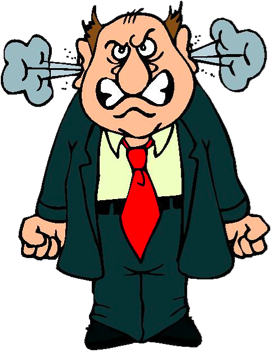If you’ve ever been in any kind of counseling or recovery group , you have probably seen or heard this acronym and advice: HALT before you speak.
It’s a great reminder that I should take a moment to consider my frame of mind before I blurt out something that might damage a relationship or wound someone else’s heart.
I had never thought about it until recently, but it is also a great reminder to us who grieve that what we interpret solely as grief (which we cannot control) might be compounded greatly by other things (some of which we can control).
So I am learning to apply the HALT acronym to a grief spiral in my own life.
When I feel absolutely overwhelmed and the grief wave is dragging me under I ask myself, “Am I hungry, angry, lonely or tired?”

H-Am I hungry?
- Have I eaten something within the past 4-6 hours?
- Have I had enough water in the past 2 hours?
- Have I eaten too much sugary food today (this can impact blood sugar even if I’m not “hungry”)?
- Am I eating a balanced diet overall?
- Am I grazing and eating too much?
- Do I have an underlying physical condition such as hypoglycemia or diabetes which may impact my ability to think clearly?
Some of us eat our feelings and some of us avoid food when we are stressed. Either can be terrible for health and for mental well-being.
If you have ever been diagnosed as borderline diabetic in the past, intense grief can send you over the edge-request that your primary health provider do an A1-c test, not just measure fasting glucose.
If you don’t feel like eating, make it a non-option. Set an alarm on your phone if you have to and consider food as medicine. If you aren’t fueling your body appropriately, you just simply don’t have the energy to do all the things grief requires.
If you find you are overeating, try to portion out healthy and lower calorie snacks that can help you feel full but are lower in sugar and empty calories. Or instead of eating, try taking a walk or doing a few minutes of impromptu exercise.

A-Am I angry?
Somewhere in life I embraced the idea that anger is “bad”. When I am angry, I feel the anger and also feel guilty for being angry.
- Has someone said something that upset me?
- Has someone done/not done something that frustrates me?
- Am I angry at God?
- Am I angry at my missing child for leaving/for choices they made/for not saying “good-bye”?
- Am I angry at myself for not protecting my child (even if it was not in my power to do so)?
- Am I angry with my spouse or other close family members because they are not grieving in the same way as me?
- Am I angry that the world goes on without my child?
- Am I angry at friends that haven’t “been there” for me?
Acknowledge your anger.
If it is toward a person, ask yourself if you can bring it to them and mend the relationship. If that’s not an option, think about how you can construct boundaries to limit that person’s impact on your life, at least while you are experiencing the most intense feelings of grief.
If it’s toward God, express it in a journal or aloud or to a safe friend. The Psalms are full of “Why God?”; “Where are You?”; “Why have You abandoned me?”
If your anger is toward your missing child, consider writing your thoughts in a journal or a letter to him or her. Often I find that really all I need is an opportunity to express myself. It doesn’t “fix” things, but it makes them bearable.

L-Am I lonely?
Grief is an isolating experience.
Once the funeral and first few days or weeks pass by, most people around us either don’t think about our loss or don’t recognize its ongoing impact on our daily lives. There have been many days when I have felt very, very alone.
- Do I feel isolated in grief?
- How long has it been since I was with other people?
- Have I called/texted/messaged anyone today?
- Has anyone called/texted/messaged me today?
- Do I feel like nobody understands me?
- Do I feel like God has abandoned me?
- Do I feel like I just can’t talk to anyone anymore because of the differences in our experiences?
I have been blessed with some amazing friends who continue to seek fellowship even though it’s been 2 1/2 years since my son left us. And I also joined several online communities of bereaved parents where I can vent my feelings any time and be assured that I am received, affirmed and understood.
I think anyone who hopes to heal after the loss of a child must have a safe someone to talk to. If you don’t have friends or family that can fill that need, consider counseling. There are just some things you have to speak aloud to be able to work out.

T-Am I tired?
- Did I sleep last night?
- Am I going to bed too late or waking too early?
- Am I staying overly busy and running myself down?
- Am I getting adequate and appropriate exercise?
- Am I taking medication that makes me sleepy/tired?
I know that for many bereaved parents, sleep is elusive. And once asleep, staying asleep is a whole other issue. But without proper rest, you cannot have the resources to do the work grief requires.
If you are consistently struggling with sleeplessness, consider asking your healthcare provider for help. There are a number of natural sleep remedies (melatonin, valerian root, etc.) that may be appropriate. And if necessary, prescription medicine can help break the cycle of insomnia.
None of these things-hunger, anger, loneliness or feeling tired-are the root cause of my grief.
I grieve because my son is gone.
BUT–any of them, or a combination of them-can make me more vulnerable to feeling worse IN my grief.
I cannot control the fact that I am grieving.
I cannot remove the burden of sorrow and pain that losing a child has placed upon me.
But I can make adjustments in my lifestyle or life choices to make it easier to bear that burden.



After 2 and a half years, I find your comments very helpful. We speak the same language of child loss. I have to practice HALT Sometimes I find my grief and anger spills out and people have just walked away. I know that they feel helpless but listening and being present with me is not a skill most possess. Please continue your writing! I appreciate you!
LikeLiked by 1 person
Tired is the one that spins me out of control. I find it relates to your thoughts regarding limited energy and unfortunately whilst working, that energy is used during that time. Especially keeping my mask in place. I think maybe at the age of sixty six, retirement is on the horizon.
LikeLiked by 1 person
Me too, Carol! When I am tired I am most vulnerable. Sadly, lifetime habits of overextending myself often land me there. I’m trying hard to learn when to draw boundaries, say “no” and simply admit that I’m too tired to participate. I think I’m getting a little better. Praying that the Lord gives you discernment and wisdom in choosing when to retire and that He continues to strengthen you in this journey. ❤
LikeLike
I have just re-read this post before and after a two hour nana nap ❤ I’ve been a bit teary the last couple of days and knew I was over tired.
Love to you my friend xxx
LikeLiked by 1 person
Reblogged this on Site Title and commented:
Definitely need to learn to HALT. Loneliness is not an issue …. I can always find something to occupy me, however isolating is. I just feel so different then “intact” people and tend to shy away from real interactions. Will put these suggestions to use.
LikeLike
This post is so timely. Nearly ten months of grieving are beginning to catch up with me physically. I will print off your article and start praying through it. Thank you.
LikeLiked by 1 person
I pray it helps you. It is so hard at first, just managing to survive. It takes time to be able to apply any kind of self-care to child loss. So very sorry for your pain and loss.
LikeLiked by 1 person